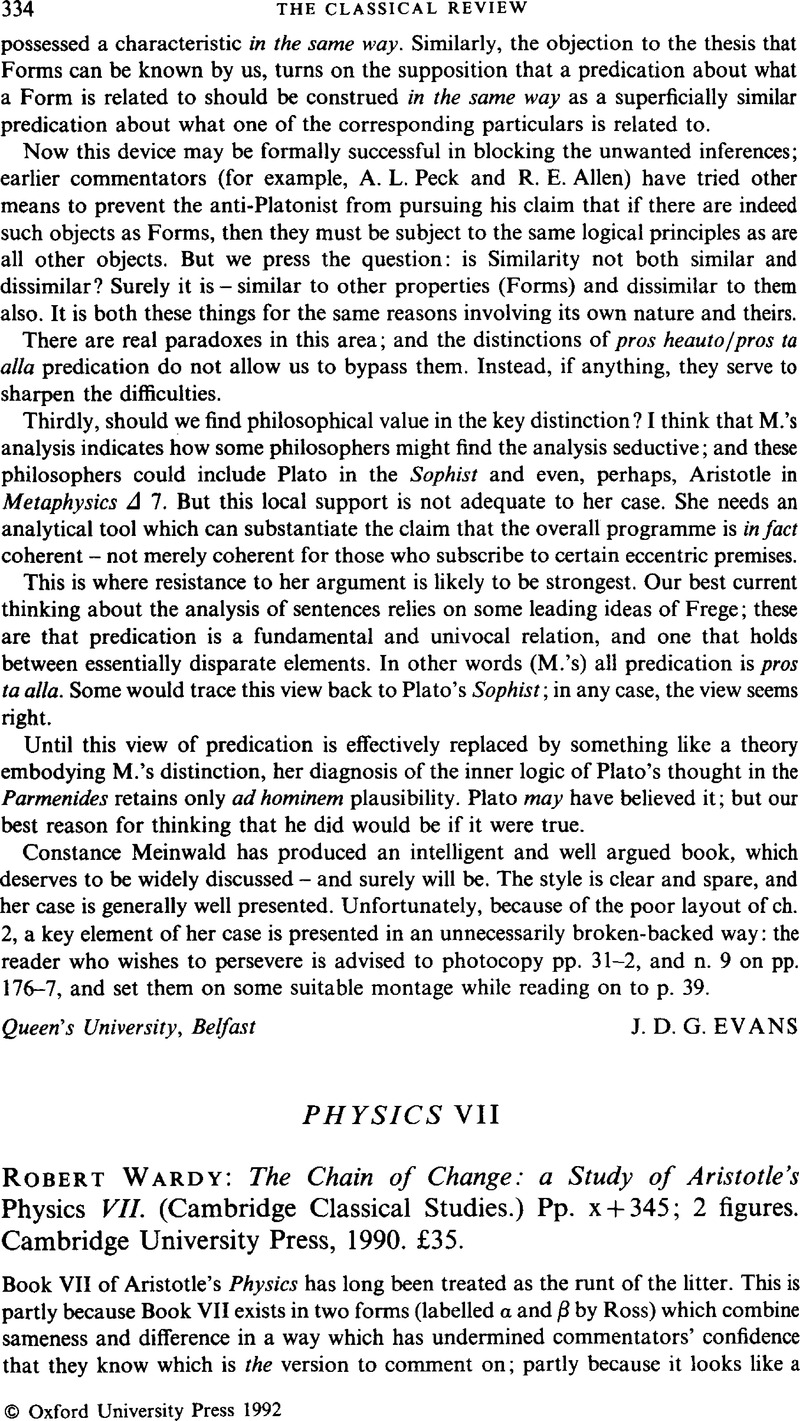No CrossRef data available.
Published online by Cambridge University Press: 16 February 2009

1 W. has another reason for insisting on the integrity of ch. 5, namely his antagonism towards what he calls ‘Whiggish’ readings of the proportionalities of force and change as embryonic Newtonian dynamics – readings which, he holds, take the proportionalities out of their proper context. But although I agree that Whiggish history must always be treated with extreme caution, W. produces no convincing argument against the mild thesis that Aristotle could have deployed VII.5's proportionalities in the context of a mathematically-oriented dynamics.
2 Of course, these alternative explanations are in a sense ‘last resort’ explanations; but we know that in the case of Aristotle's writings this sort of explanation is often applicable, and it is a pity but no argument that the less economical explanation is the one which would in principle be preferable.
3 And his claim that Book VIII ‘cannot in logic do without’ the argument of VII is (in logic) extreme – as if no other filling for the gap is logically possible. Here, as often, W. is slightly melodramatic in stating his case.
4 A further issue relevant here is the question of the role of VII.4 discussed above.
5 Nor, one hopes, in VII, since otherwise his argument there would commit him to the simultaneity of all changes.